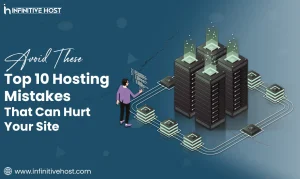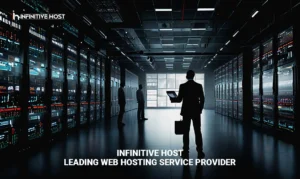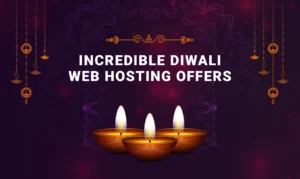How Secure Is Your Hosting? Top 7 Features to Check Out
In the modern world, understanding how secure your chosen hosting is no longer an option—it has become a necessity. Even if you are running a personal blog, an e-commerce store, or enterprise-level apps, your selected web hosting environment forms the core of your whole digital presence. Security breaches, unexpected downtime, or any type of data loss can lead to disaster for your well-known business. That is why it is important to know about the security features of your web hosting service provider even before you commit.
Ranging from a GPU dedicated server to cloud hosting plans and Linux or Windows Cloud VPS, every single hosting plan usually comes with its own set of safety considerations. In this comprehensive blog, we will take you through all 7 main features to check to ensure your hosting environment is robust, reliable, and secure.
1. SSL Certificates & Data Encryption
One of the very first and main questions to always ask when using web hosting is how secure is your hosting, even if your service provider provides a free SSL certificate and powerful data encryption. SSL (Secure Socket Layer) makes sure that all the data that is simply exchanged between your site and your genuine visitors is encrypted (meaning fully secure), making it highly challenging for hackers to get personal information.
For all those businesses that are using GPU hosting, a dedicated server and an SSL certificate are very important, especially if managing client payments, personal details, or other private data. Encryption should cover not only website traffic but also database storage and any other additional communications between available server components.
2. Firewalls & Network Protection
Another important aspect to check out is how secure is your hosting, the quality of firewalls, and network-level security. Firewalls are the ones that act as a huge barrier between your chosen server and possible threats from the internet. Modern web hosting solutions, consisting of a GPU dedicated server and Linux Cloud VPS, usually consist of hardware and software firewalls that constantly check incoming and outgoing site traffic in real time.
Most of the hosting service providers also provide DDoS security, which protects all your servers from huge attacks that can lead to unexpected downtime and data loss. When assessing your hosting options, mainly Windows Cloud VPS or budget Indian cloud solutions, check if all these features are added.
3. Constant Backups
Even the safest hosting environment is at high risk of unpredictable incidents. That is why constant backups are very important at the time of considering how secure is your hosting. Backups make sure that if anything goes wrong, whether just because of any basic human error, a huge cyberattack, or an unpredictable server failure, you can quickly restore your whole site or app to a past state.
Providers providing a GPU server and cloud hosting solutions generally include automated backup plans. Check if your service provider helps in the quick restoration of backups and even if they store backups off-site to safeguard against catastrophic collapse.
4. Malware & Intrusion Detection System

Knowing about how secure is your hosting also refers to opting for malware and intrusion detection. These advanced tools quickly monitor your servers for harmless activity, doubtful logins, and software vulnerabilities.
A GPU dedicated server and cutting-edge GPU hosting from Infinitive Host’s setups, mainly all those who are running challenging apps, can be targeted more generally. Make sure that your hosting service provider has careful scanning, true alerts, and remediation options. A powerful malware security plan can avoid all types of breaches before they harm your data deeply.
5. Safe Server Access
At the time of checking how secure your hosting is, full server admin access is a crucial factor. Who can easily log into your chosen server, and how are their details safeguarded? SSH keys, 2FA, and solid permission settings are necessary for properly maintaining a safe environment.
For all those businesses that are using Infinitive Host’s dedicated servers or Linux Cloud VPS, controlling admin control can avoid illegal changes, malware installations, and data leaks. Even Windows Cloud VPS solutions must provide powerful user authentication mechanisms to safeguard against login theft.
6. Software Updates & Patch Management
Keeping your software updated is one of the simplest yet most overlooked ways to determine how secure is your hosting. Vulnerabilities in previous OS, apps, or control panels can offer a quick entry point for every hacker.
The best web hosting service providers, consisting of all those providing a GPU server, cloud hosting, and budget Indian cloud solutions, manage patch management and automated updates. Make sure your chosen hosting plans consist of timely operating system updates, safety patches, and software version monitoring.
7. Physical Security & Data Center Compliance
Eventually, using How secure is your hosting goes beyond online security—it also consists of physical security. The best GPU dedicated server and cloud hosting service providers properly maintain data centers with limited admin controls, CCTV monitoring, and environmental protection against huge fires, flooding, or power disruptions.
Moreover, compliance certifications like ISO 27001, SOC 2, or PCI-DSS show that the service provider sticks to recognized safety standards. Even if you select a Linux Cloud VPS or Windows Cloud VPS solution, physical security and well-certified data centers are non-compromisable.
Additional Tips for High Security

While these 7 features mentioned above form the strong pillar of safest hosting, there are some bonus steps to further protect your whole setup:
- Constantly monitor logs to simply track the activity of every single user and server performance.
- Apply powerful passwords and unique credentials for available accounts.
- Divide personal apps to reduce risk exposure.
- Utilize VPNs or private networks for more communications.
- Train your team members on cybersecurity best practices.
Winding Up
So, how secure is your hosting? It completely relies on whether your service provider covers the important areas: encryption, backups, firewalls, malware detection, access control, patch management, and more.
Even if you are looking for a GPU dedicated server, a dedicated server, VPS hosting, Linux Cloud VPS, or a budget Indian cloud solution, exploring these 7 mentioned features guarantees proper peace of mind and powerful security.
Investing heavily in a safe hosting environment not only safeguards your data but also improves site performance, gains visitor trust, and supports long-term business success. Don’t wait for a safety breach to ask, “How secure is my hosting?”—take strict action now and protect your digital assets.









